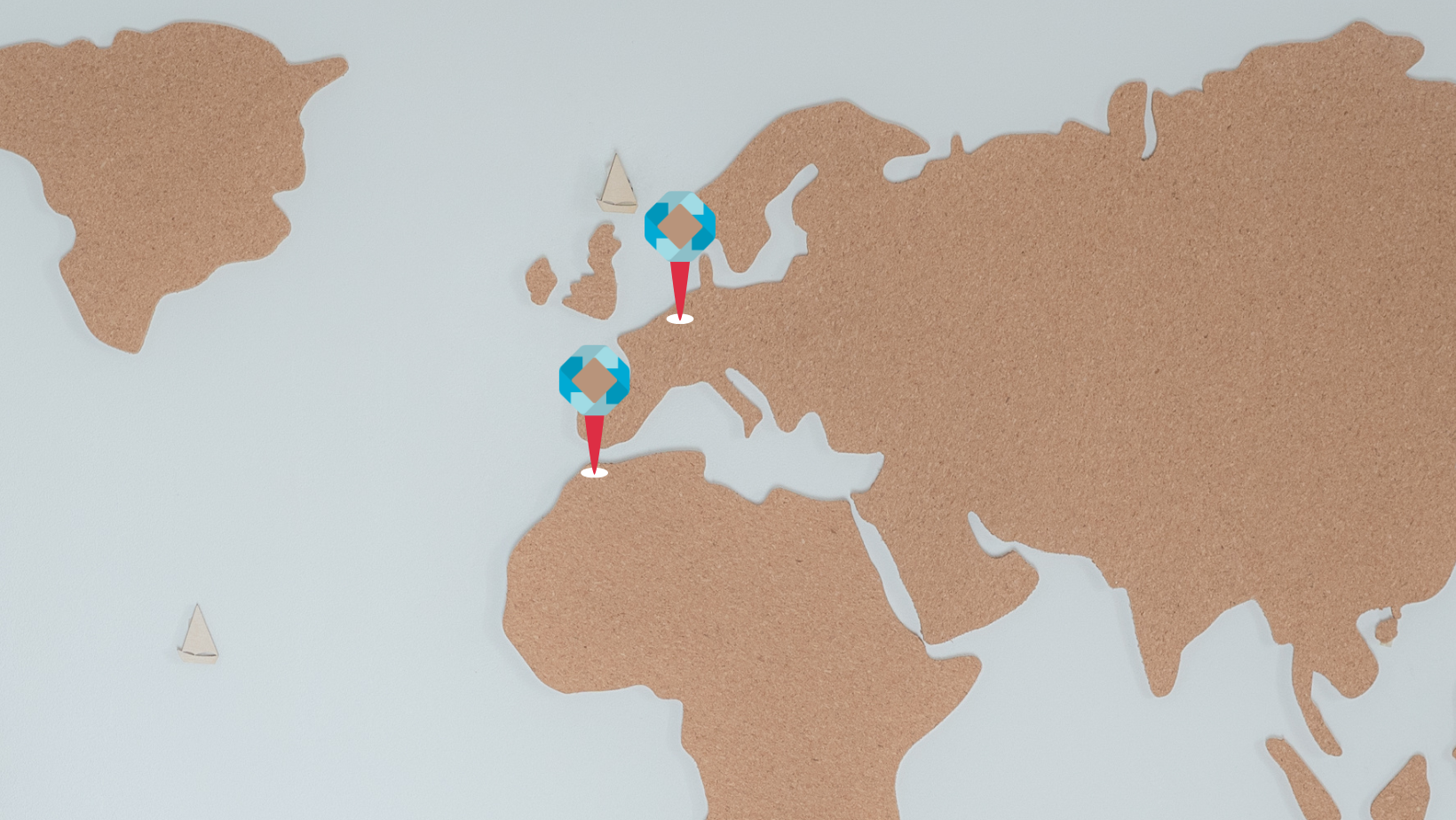Morocco – why there?
Wolkat is a family business that was founded in Tilburg in 1948. These days, this Brabant family character still exists, and I work with the daughter, mother and father on the development of our recycled products. That said, quite a lot has changed since 1948. For instance a Wolkat production facility in the northern Moroccan coastal town of Tangier was added in 1995. We often get asked -why there? Well, there are several reasons for that.

First of all, it is the strategic location of the city. Tangier has a large port, where ships carrying the discarded textiles can easily sail to from the ports of Rotterdam or Antwerp. Once there, the textiles are sorted by colour and raw materials, and then taken to the Wolkat factory in the city. There, under one roof, the textiles are transformed into new end products: first by turning your discarded sweater into recycled yarn, and then by weaving it into new textiles. So, when the discarded textiles arrive in Tangier, they only need to be transported over a very short distance before the entire processing cycle is completed in one and the same place. Many other textile manufacturers do things differently. Take a look at this BBC article, for example, about the journey of a fast-fashion dress[1]? As well as saving on transport costs and CO2 emissions, having everything under one roof is also very practical for Wolkat: if a weaver has a problem with a particular yarn, they can walk over to the spinning department and find out what the problem is straight away.
In addition, more and more clothing brands are moving (part of) their production to Tangier, also known as the gateway to Europe[2]. As a result, if Wolkat’s fabrics need to be made into bags or an item of clothing, there are many local companies that can do this very well, and through these companies, Wolkat has a direct link to the clothing brands.
In addition to the strategic location, the financial picture, as is – unfortunately – often the case, plays an important role in the choice to manufacture in Tangier rather than in Tilburg, as was traditionally the case. In the mechanical recycling process, many human hands are needed. As outlined earlier, Wolkat sorts the textiles to be recycled according to colour and raw materials, which our trained employees all do by hand. Because labour costs in Morocco are lower than in the Netherlands and other European countries, Wolkat is still able to supply yarn and textile products that can compete with non-recycled textiles produced by competitors in Asia, for example, even after this labour-intensive recycling process. While many clothing or interior décor brands want to become sustainable, for producers and consumers, it is always the price that remains an important incentive in choosing for a more sustainable product or not. By keeping the cost price of our products lower, Wolkat can compete in the competitive global textile market.
And sure, if you asked us, we would also prefer to carry out the whole process – from discarded jeans to recycled jeans – in Tilburg or the Netherlands and recycle our textiles locally, which would make them even more sustainable. Unfortunately, with today’s Dutch labour costs, this is not profitable (yet) for Wolkat.
[1] https://www.bbc.com/news/business-39337204 , BBC, 2017
[2] https://www.supplychainmagazine.nl/fast-fashion-komt-steeds-vaker-marokko/ Supply chain magazine, 2017